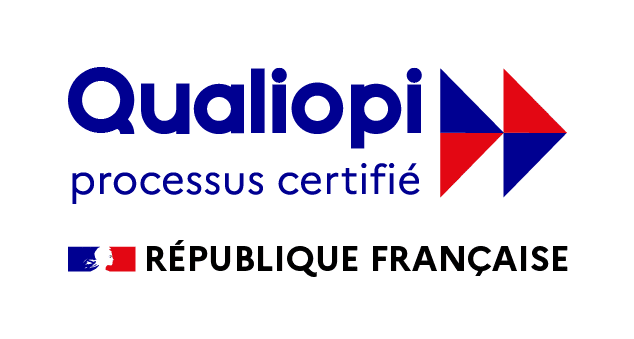Boost your projects with agility: Master Scrum & Kanban
Discover the most widely used agile frameworks and learn how to apply them to run your projects with more fluidity and performance.
This training helps you master the Scrum Master role, understand all Scrum roles, and explore Kanban to manage your projects with agility and efficiency.

Learning Objectives
At the end of this training, you will be able to:
- ✅ Understand the principles and values of agility
- ✅ Identify the key roles and responsibilities in Scrum (Scrum Master, Product Owner, Development Team)
- ✅ Master the Scrum Master role and develop a servant-leader and facilitator posture
- ✅ Effectively facilitate Scrum ceremonies (Daily, Sprint Planning, Review, Retrospective)
- ✅ Manage Scrum artifacts (Product Backlog, Sprint Backlog, Increment) to ensure transparency and prioritization
- ✅ Understand the fundamental principles and practices of Kanban
- ✅ Set up and manage a Kanban board to optimize workflow
- ✅ Compare Scrum and Kanban, identify their complementarities, and know when to use one, the other… or Scrumban
- ✅ Develop an action plan to apply these practices in your professional context and support an organization in its transition to agility
Trainers
Our trainers are experienced agility practitioners and certified Scrum Masters (PSPO, SAFe Scrum Master, SAFe Product Owner/Product Manager…). They have 10 to 15 years of experience in leading agile projects and regularly support organizations in their transformation.
Practical Information
- Duration: 2 days (14h)
- Price: €1,135 (excl. VAT)
- Funding: Possible (Companies, OPCO, CPF if applicable)
- Target audience: Future Scrum Masters, project managers, consultants, or any collaborator involved in agile projects.
- Prerequisites: None
Detailed Program
Day 1 – Discovering Agility & Immersion in Scrum
1. Understanding agility and its foundations
- Origins of agility
- Values and Principles of the Agile Manifesto
- Scrum pillars & values
- Difference between traditional approaches and Agile approaches

Learning objective: Understand the foundations of agility, identify its origins, values (Agile Manifesto), and its applications in Scrum, in order to spot the main differences with traditional project management approaches.

Workshop: Case study: traditional vs agile project management comparison.
2. The roles in Scrum
- Scrum Master, Product Owner, Development Team
- Responsibilities and interactions

Learning objective: Understand the key roles in Scrum and their complementarity.

Workshop: Role play: simulation of a Scrum team in action.
3. The Scrum Master role in detail
- Servant-leader posture
- Facilitation, coaching, and obstacle management
- Scrum Master’s role beyond the team: relationship with stakeholders and management
- Differences with the Product Owner and the Development Team

Learning objective: Master the Scrum Master role and its impact on the team.
Day 2 – Advanced Scrum Practices & Introduction to Kanban
5. Scrum artifacts
- Product Backlog, Sprint Backlog, Increment
- Importance of transparency, prioritization, and adaptation

Learning objective: Use artifacts to manage an agile project.

Workshop: Building and prioritizing a Product Backlog.
6. Developing a high-performing agile team
- Obstacle management and continuous improvement
- Communication and collective intelligence

Learning objective: Support the team toward autonomy and performance.

Workshop: Simulation: handling a blocking obstacle.
7. Discovering Kanban
- Fundamental principles of Kanban
- Flow visualization and WIP limits
- Kanban tools and boards

Learning objective: Set up a Kanban board adapted to a project.

Workshop: Create and use a collaborative Kanban board.
8. Scrum vs Kanban: differences & complementarities
- Iteration-based approach (Scrum) vs continuous flow (Kanban)
- Strengths and limitations of each approach
- Introduction to Scrumban

Learning objective: Choose the most suitable method for your context.

Workshop: Comparative case study (choose Scrum or Kanban for 2 scenarios).
9. Practice & action plan
- Synthesis of key learnings
- Build an action plan for your team or organization

Learning objective: Be able to concretely apply Scrum and Kanban in your environment.

Workshop: Individual action plan: how to integrate agility into your next project.

Workshop: Case study: solving a team blockage as a Scrum Master.
4. Scrum events
- Sprint Planning, Daily Scrum, Sprint Review, Retrospective
- Best practices and common pitfalls to avoid

Learning objective: Know how to effectively facilitate and pace Scrum ceremonies.

Workshop: Simulation of an agile Retrospective.
Participant Reviews
A fascinating training! I appreciated the trainer’s clarity and the immediate practice of Scrum and Kanban. I’m leaving with a real toolbox.
The mix of theory and workshops is perfect. The Scrum Master role is much clearer to me and I know how to apply Kanban in my projects. Thanks to Sara for the facilitation.
I had little experience with agility, but this training gave me confidence. The simulations helped me understand Scrum ceremonies and try out Kanban in practice.
Qualiopi Certified Training

Our organization is certified Qualiopi, a guarantee of the quality of our training processes. This certification allows you to benefit from public or mutualized funding (OPCO, CPF, etc.).
Summary
Boost your projects with agility: Master Scrum & Kanban
💰 Price: €1,135 excl. VAT
(VAT not applicable, art. 261-4-4° a of CGI)
🕒 Duration: 2 days - 14h00
(typical hours: 9:00 – 12:30 / 14:00 – 17:30)
📍 Format:
In-person (Available in English and German on request)
💡 Possible funding:
Company, OPCO, CPF if applicable
✅ Prerequisites: None
♿ Accessibility:
Training accessible to people with disabilities (contact us to adapt support and learning methods)
